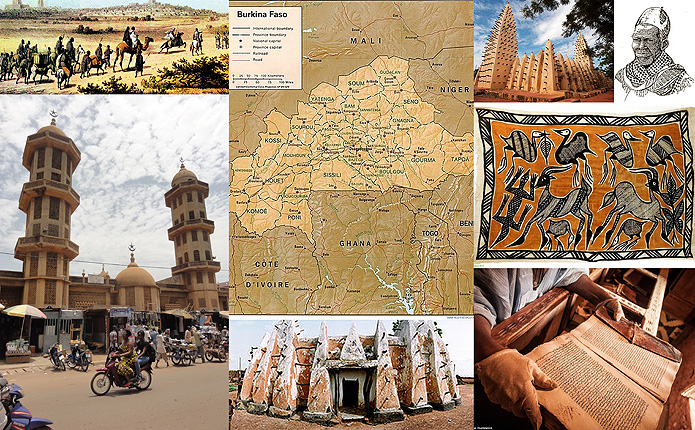As Africans make strides toward developing the continent, this week we celebrated the founding of the Organization of African Unity (OAU) in 1963. On this day, leaders of 30 independent African states signed a founding charter in Addis Ababa, Ethiopia. Though the OAU was succeeded by the African Union (AU) in 2002, the name and date of Africa Day is retained as a celebration of African unity.
Africa Day is celebrated across the continent, though only Ghana, Mali, Namibia, Zambia, Lesotho and Zimbabwe have memorialized the day as a national holiday. While the continent has long been praised for its diversity of culture, language and clothes, the role of religion has, certainly, played a vital role in the development of the continent, with a 60 per cent Muslim population, who are mainly situated in North Africa.
Many historians and theologians argue that the history of Islam in the continent is as old as the religion of Islam itself, since it extends to the life of the Prophet Muhammad (pbuh), in which he advised his companion to migrate to Abyssinia, modern day Ethiopia. The Muslims who migrated to the continent found refuge with a Christian king in the Kingdom of Aksum, following an attack against Muslims in Makkah, Saudi Arabia.
Therefore, outside of Makkah, Africa was the first continent and, even before Madina, North Africa was the first region, to receive Muslims.
Upon the Muslims return to Arabia, a number of Muslims remained in Abyssinia, so the first non-Arab Muslim community was established in Africa.
While Ethiopia is predominantly a Christian country, Muslim Africans in general take pride in the historic context of Islam’s introduction into Africa, as well as the trust that the Prophet (pbuh) had in African brethren.
According to Suleman Dangor, the Professor Emeritus at the University of KwaZulu-Natal, though Muslims in African countries are minorities, they continue to live alongside Africans of all religions and cultures. This draws on the prophetic example where a minority of Muslims lived in peace, not as a khaleefat, but in a Christian kingdom.
“Society has specific needs, but in Abyssinia it shows that a minority of Muslims can live in a majority Christian country and be allowed to continue practicing their faith,” he said.
Following the spread of Islamic teachings and scholarship within the continent, Dangor explained that people ventured to Africa, not only to study Islam, but as revealed in the Timbuktu manuscripts people studied all facets of education, ranging from astronomy to geography.
The exemplary academic history of Africa is carefully depicted in the famous Timbuktu manuscripts, which South Africa has proudly been assisting in preserving.
“It’s rather sad that the situation is reversed, now people from Timbuktu have to go to elsewhere to study and in the process their heritage is under threat,” Dangor asserted.
He said that while Europe was embattled in wars, many African kingdoms established sophisticated administrative systems, which included taxation.
Islam is South Africa
Closer to home, Islamic history stretches some 350 years back with the arrival of the first Muslims to the Cape, who hailed from Indonesia and Malaysia.
Dangor said that Indians came to South Africa as slaves, not in 1860 as many believe, but rather as early as the 17th century.
In addition, since Muslim’s who were brought to the Cape as slaves from elsewhere in Africa and as slaves and prisoners from Malaysia, Indonesia and India, Islam was established in South Africa with the arrival of Jan van Riebeeck.
He said that since 1994, with the influx of Muslims from all parts of the world, South Africa certainly has a very interesting mixture of Muslims.
“We are very much part of this country and it is interesting that we had immigration from different countries.”
Dangor further noted that as Islamaphobia grows around the world, Muslims in Africa have been able to continue to live without large amounts of criticism from locals, a luxury that Muslims in other continents are unable to enjoy.
VOC






 WhatsApp us
WhatsApp us 

